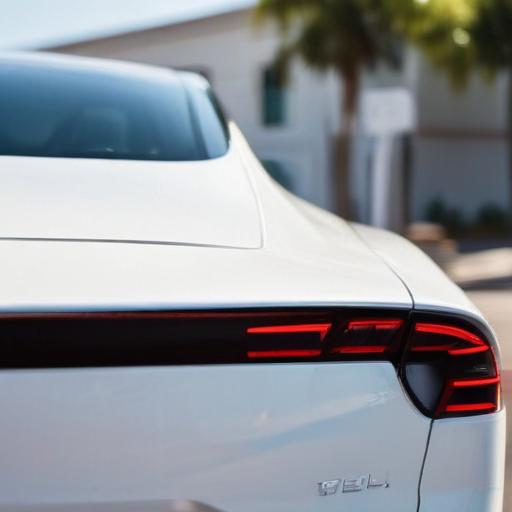Elon Musk’s foray into the political landscape has continued to cast a shadow over Tesla, as the electric vehicle manufacturer reported a significant downturn in both sales and profits in the latest quarter. Revenue plummeted by 12%, with profits also declining by 16% during the three months leading to June. This marks Tesla’s third consecutive quarter of falling profits, as buyers appear reluctant to purchase its vehicles amidst ongoing boycotts and a tarnished brand image.
Analyst Dipanjan Chatterjee of Forrester noted that the perception of Musk has adversely affected Tesla’s appeal, branding it “a toxic brand” closely tied to its CEO. Quarterly profits dipped to $1.17 billion, translating to 33 cents per share, a decrease from $1.4 billion or 40 cents per share in the previous year. Revenue fell from $25.5 billion to $22.5 billion, although it slightly exceeded Wall Street forecasts.
In the earnings call, Musk focused less on car sales and more on ambitious projects like robotaxis and advanced robotics. However, many of these ventures have yet to prove profitable. Analysts, such as Seth Goldstein from Morningstar, commented that Tesla’s management seems to be shifting its focus away from traditional vehicle sales toward the future potential of robotaxis.
Musk’s political leanings have reportedly impacted consumer sentiment in key markets like the U.S. and Europe, giving an advantage to competitors such as BYD and Volkswagen. To combat these challenges, Tesla has begun to implement a paid robotaxi service in Austin, Texas, with aspirations to expand to more cities. Musk envisions having hundreds of thousands of these autonomous vehicles on American roads by the end of next year, subject to regulatory approval.
Another hurdle Tesla faces is the recent federal budget changes, which repeal electric car purchase credits and eliminate penalties for manufacturers exceeding carbon emissions standards. This places additional strain on Tesla’s revenues, particularly the sale of carbon credits, which saw earnings plummet from $890 million to $439 million year-over-year. Musk anticipates difficult quarters ahead but remains optimistic about achieving profitability once Tesla reaches scalability with autonomy.
To stimulate sales in the interim, Tesla plans to introduce a more affordable vehicle model by the end of the year. Additionally, Musk foresees regulatory approval for the Full Self-Driving software in parts of Europe nearing the year’s end, despite past delays. He expects a significant increase in production for Tesla’s robotic technology, projecting growth to 100,000 units monthly within the next five years.
Despite the current challenges, including gross margins falling slightly to 17.2%, Musk’s investment in Bitcoin has yielded positive results, with a $284 million paper gain reported in this quarter, contrasting with losses in the last.
Tesla may be in a period of transition, yet Musk’s long-term vision for autonomous technology and robotics could pave the way for future innovation and resurgence in the market. If successful in these endeavors, it might not only stabilize the company’s standing but also redefine its potential within the electric vehicle and technology sectors.
